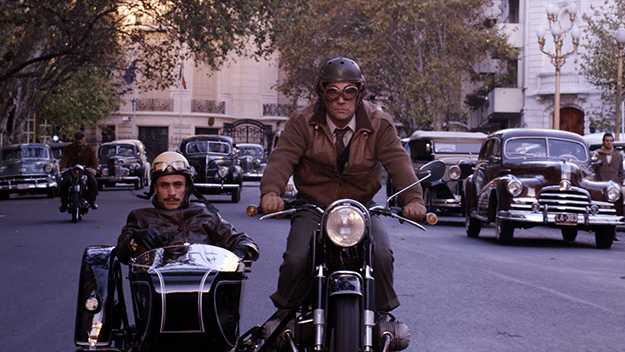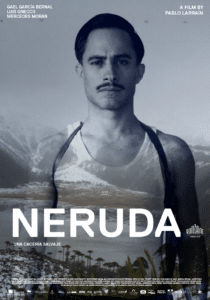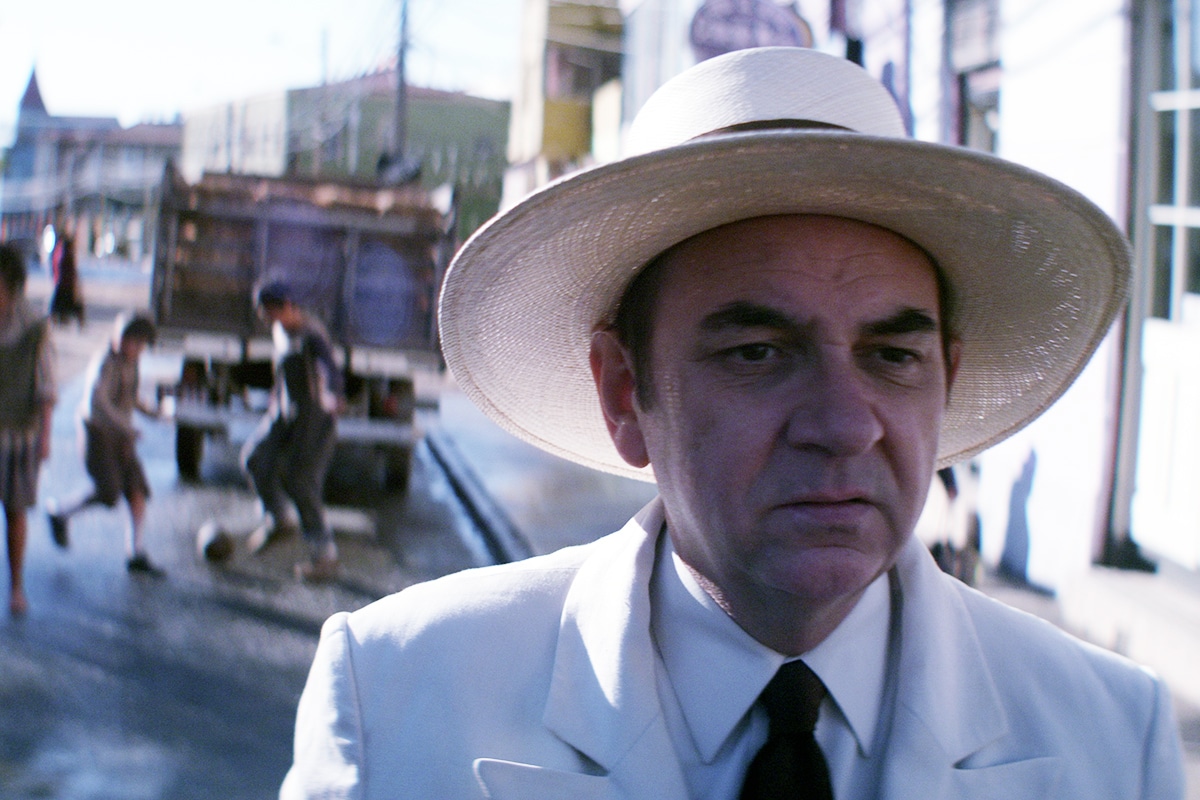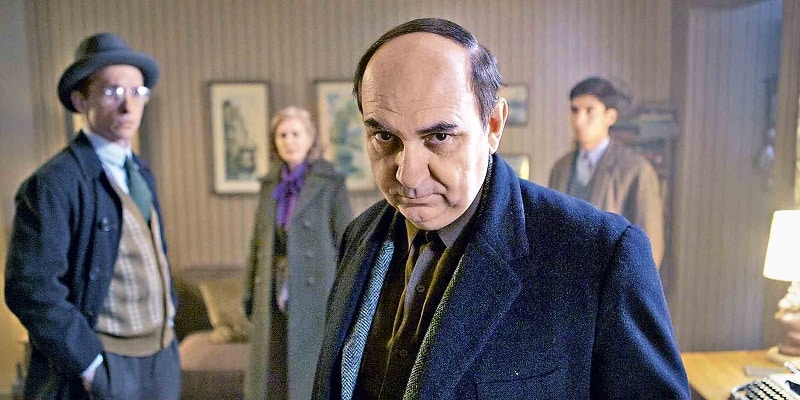
I confess to knowing very little about either the films of Pablo Larraín nor the poetry or politics, of Pablo Neruda. I daresay a little more knowledge of either might have increased my engagement with and enjoyment of Neruda, one two biopics made by Larraín released in 2016. I saw Jackie earlier this year, and felt rather swept away by it, but I can’t really say the same in the case of Neruda, although it’s an interesting construction of an almost unbelievable character.
In the film Neruda we join the titular poet (Luis Gnecco) in 1948, as a senator for the Communist Party in Chile. The Chilean President González Videla (Alfredo Castro) outlaws Communism, and forces the decadent Neruda into hiding, along with his wife, artist Delia del Carril (Mercedes Morán). Set on the case of keeping track of, but not necessarily capturing, Neruda is policeman Oscar Peluchonneau (Gael García Bernal), who narrates the film. As the cat-and-mouse game ensues, the line between Neruda and Peluchonneau becomes thinner, the two men dependent upon each other for continued – or potential – infamy.
 Much like Jackie, Neruda is not a traditional biopic, and instead takes a look at a brief snapshot of the subject’s life. While Jackie was particularly focused on a moment in the First Lady’s life, it was also particularly hazy and dream-like. That sense of dreaminess is manifest ten-fold in Neruda, with the year in the poet-politican’s life seeming more a fictional representation of what could have been than any attempt to reflect true, hard-and-fast facts. And for that I think the film is to be praised, in some ways, it is indeed enjoyably meandering. However, for the most part, I found my attention meandering too, and even thought the film has moments of humour, and moments of intrigue, it otherwise lacked any real engagement with its characters, for me. Now, whether that’s due to my complete ignorance in all things Neruda, I’m not sure, but considering Peluchonneau is a semi-fictionalised creation, I found his character to be much more engaging than that of Neruda (was that the point?).
Much like Jackie, Neruda is not a traditional biopic, and instead takes a look at a brief snapshot of the subject’s life. While Jackie was particularly focused on a moment in the First Lady’s life, it was also particularly hazy and dream-like. That sense of dreaminess is manifest ten-fold in Neruda, with the year in the poet-politican’s life seeming more a fictional representation of what could have been than any attempt to reflect true, hard-and-fast facts. And for that I think the film is to be praised, in some ways, it is indeed enjoyably meandering. However, for the most part, I found my attention meandering too, and even thought the film has moments of humour, and moments of intrigue, it otherwise lacked any real engagement with its characters, for me. Now, whether that’s due to my complete ignorance in all things Neruda, I’m not sure, but considering Peluchonneau is a semi-fictionalised creation, I found his character to be much more engaging than that of Neruda (was that the point?).
The most interesting aspect of the film to me was by far its form, which boasts a degree of pleasing artifice befitting its narrative. The use of light is striking, with an abundance of heavy flaring and glare (and not in a JJ Abrams sort of way), stark backlighting is an important contributor to the film’s dream-like quality. Meanwhile, the use of obvious back-projection during driving scenes becomes increasingly pronounced as the film goes on, a subtle support to the film’s general unravelling and tangling of the two characters, particularly Peluchonneau.
 For me this was a film more about Peluchonneau than it was about Neruda, but I’m not confident enough to say that that’s not in fact a reflection on Neruda himself. It feels like a film I should re-watch, now that I have an ever-so slightly better understand of who Neruda was. Before seeing the film I didn’t even know that he was a politician, never mind someone who was on the run from the government he was once a part of. The film certainly isn’t an accurate introduction to the man in terms of historical fact, and neither does it aim to be so, but it does give a sense of the character: a champagne socialist in the truest form, it seems. More than anything, though, the film seems to use Neruda as a means to meditate on reputation and on art, and in that sense it’s very successful.
For me this was a film more about Peluchonneau than it was about Neruda, but I’m not confident enough to say that that’s not in fact a reflection on Neruda himself. It feels like a film I should re-watch, now that I have an ever-so slightly better understand of who Neruda was. Before seeing the film I didn’t even know that he was a politician, never mind someone who was on the run from the government he was once a part of. The film certainly isn’t an accurate introduction to the man in terms of historical fact, and neither does it aim to be so, but it does give a sense of the character: a champagne socialist in the truest form, it seems. More than anything, though, the film seems to use Neruda as a means to meditate on reputation and on art, and in that sense it’s very successful.
